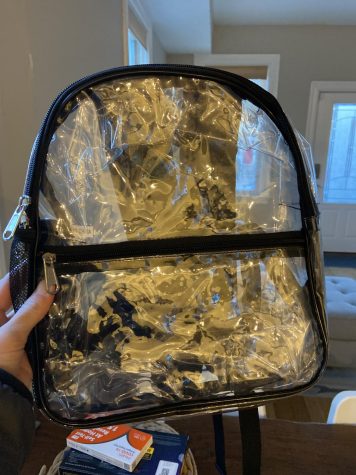Stress seizes students’ focus
School is one of the top stressors for teenage students.
School is the OG of the stress world. One of the first things a number of student recall stressing about is something school related. With the amount of stress school it doesn’t leave much room for too many other emotions.
Whether it be deadlines, sports, tests or homework, everyone has stress in their life. This stress can cause headaches, nausea, insomnia and tense muscles. The Webster dictionary defines stress as “a physical, chemical, or emotional factor that causes bodily or mental tension and may be a factor in disease causation.” While this may be the official definition, stress can be caused by school, friend drama, home life and a number of other things.
For multiple students, the typical school scene is enough to prompt the premature production of gray hairs. Sophomore Aileen Nguyen, who is taking three AP classes, four honors courses and has several extracurriculars said, “Of course I get stressed.” Senior Gabrielle Cabeza, possible Valedictorian of the graduating 2018 class, said, “I’m stressed every single second of every single day. Including when I’m sleeping.” That seems like a lot of stress to put on a teenager.
However, there are many ways to cope with stress. Nguyen said that exercise and music calm her down when she’s feeling pressure from school.
“I play the piano and that helps. I also bike,” Nguyen said.
On the other hand, Cabeza says that she takes a lot of naps to cope with her stress, “And I have to binge watch Netflix at least once a week,” she said.
According to the Center of Disease Control and prevention (CDC), some healthy ways to deal with stress are eating healthy and balanced meals, getting active (exercising, writing, playing an instrument), getting plenty of sleep and taking the occasional break.
Not all coping methods are positive, however. People often resort to negative ways of dealing with their worries. Some of these bad ways are drugs, violence, alcohol, caffeine and ignoring the problem. Stress can also cause people to develop addictive behaviors. Some people will have a mug of coffee to try and give themselves the energy to finish their homework at 3 a.m., Or they may down a coffee after an all-nighter of homework to give themselves energy in the morning. That one morning’s coffee often becomes a Yeti cup full of it every morning before school. This addiction can stunt growth and cause insomnia. People who turn to these types of relief tend to put more stress on themselves.
As most teens are aware, it can be increasingly difficult to do all of their work for school and get a good amount of sleep. The average teen is supposed to be getting 9.25 hours of sleep every night. Getting a full nine hours of sleep? An outrageous request. Teens are getting about seven.
“On a good day I get six hours, on a bad day I get about four,” Cabeza said.
On average, high school students get up at about 6 a.m., so they would have to be going to bed at 8:45 p.m. to get the right amount of sleep. School sports can go until 6 p.m., which would give the student about two and a half hours to get home, shower, eat dinner, do all their homework and get in bed to fall asleep: a nearly impossible task. Other students have extracurriculars or part time jobs that can last until late in the evening.
There is a sign in the front office that says, “Good morning. Let the stress begin.” Every student that has noticed the sign has either solemnly said, “same,” or nodded their head morosely in agreement. There is so much pressure coming from parents and school telling students to make decisions about where they want to go to college and how they need to keep their grades up and to join a club, but also do their homework and get a good night’s sleep. And let’s not forget that they also need to be outside for at least an hour every day. With about 30 minutes of homework per class and seven classes, people don’t have much time to go out and be active.
Even though stress put on by school is destroying students mental and physical health, there are still ways to cope. Listed below are several help hotlines. They are anonymous and almost always have someone there to talk with. If a person calls and doesn’t feel like they’re comfortable with the person that answered the phone, then they can hang up and call again for someone different to talk with.
Disaster Distress Helpline: 1-800-985-5990
National Suicide Prevention Lifeline: 1-800-273-TALK (1-888-628-9454 for Spanish-speaking callers)
Youth Mental Health Line: 1-888-568-1112
Child-Help USA: 1-800-422-4453 (24 hour toll free) Coping With Stress









